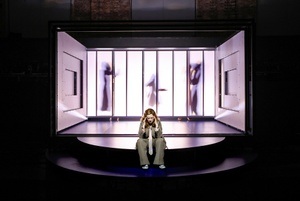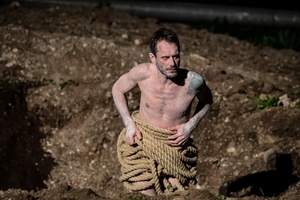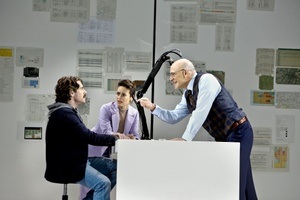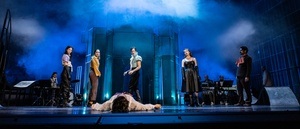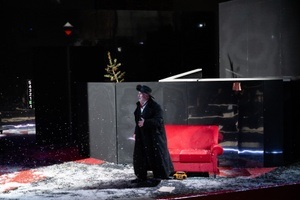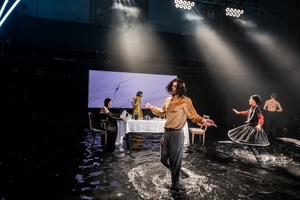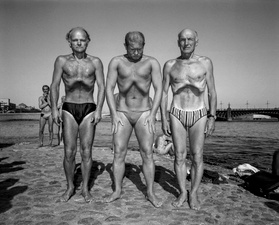Frau Schmidt und das Kind aus Charkiw
In the organizer's words:
Mannheim-Ludwigshafen, late 1940s: The world war is over, the bombs have fallen, and Mrs. Schmidt wonders which husband she actually got back after a "civilian assignment" as an engineer in the Ukraine in 1944? He can't talk, but he can't keep quiet either. Anne Habermehl observes ten years of family attempts at survival and reconstruction in the American zone: father, mother, child - and the formation of democracy in West Germany. At the same time, in her play the author allows a second Schmidt family - seventy-two years later - to look back at Ukraine: in 2022, Russia attacks Ukraine and interrupts the Schmidts' search for the origins of their adopted Ukrainian son, whose origins they have concealed since 1990.
Where do the blind spots in the family stories come from, do they have a system? Which narratives are being erased so that (West German) life can continue to flourish in peace and freedom?
In the second part of her Europe trilogy, Anne Habermehl reverses the perspective: After "Frau Schmidt fährt über die Oder", this time her protagonist does not look from the East to a future in the West, instead she looks from the deep West to the East, exploring the concealed past. In Habermehl's plays, history becomes tangible and poetically alive.




